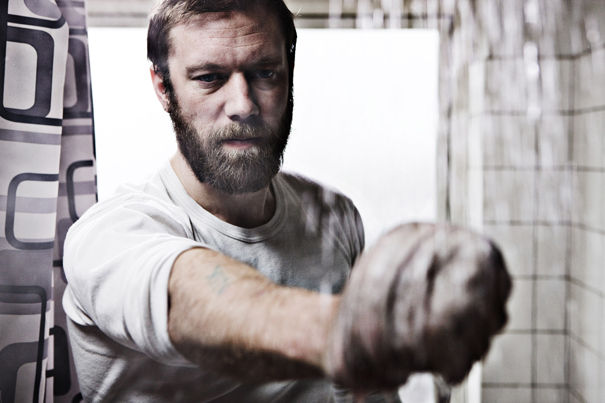A Different Kind of Dogma
No matter how bad it gets, there's still hope in this latest effort from Dogma 95 co-founder Thomas Vinterberg that premiered at the Berlinale Competition.

SUBMARINO
Every tragic thing that could possibly happen, happens in Thomas Vinterberg’s Berlinale Competition film SUBMARINO (Denmark). The opening and closing scene, ethereal in its bright-whiteness, contrasts the dark muted tones of the rest of the film, as two young boys christen their baby brother. Distinguished as a moment of purity, this scene dogmatically tells us that children are born good and that their fate to endure terrible lives is not their fault, but simply the result of an unlucky draw. And everything that happens in between these bookends is consistently calamitous.
Vinterberg’s two brothers are at no fault for the tragic course of their dismal lives. He denies any possibility of corruption, cruelty or badness in these characters who are relentlessly depicted as “good guys”. Nick, the older brother passively takes the blame when his friend accidentally murders Nick’s lover (who would do that? Why? We have no reason to believe that Nick is a loyal friend), and his younger brother is defined by his unconditional devotion to his young son Martin (how did he evade taking on his mother’s temperament or inclination toward neglect?). We are meant to identify and be heartbroken by their well-intentioned and simple goodness but where did it come from? Are we to believe it is innate? It’s too easy (and boring) to sympathize with the good, and this overly bland characterization provokes the opposite effect – we don’t care because it doesn’t feel real.
Compared to the Dardenne brothers’ L’ENFANT, a film that grapples with similar themes, SUBMARINO is the overly romanticized version, unwilling to delve into the true grit of the dark side of humanity and its redemptive counterpart: personal responsibility. Both films aim to depict realistically the desperate lives of people on the fringe of society, yet the Dardennes manage to frustrate us, confuse us, make us feel the aimlessness of the protagonist’s choices and we are let in on why they were incapable of making better ones. They are held responsible and that’s why it’s tragic. Vinterberg’s brothers float through their lives not as real people who’ve been marred by the terrible circumstances they’ve faced, but miraculously come out morally unscathed. The bad fate that they encounter is never their fault. They are always victims – of bad parenting, addiction, circumstance, poverty – and all their acts are justified in desperation because of this condition. After all the difficulties they have faced that bring them to their dramatic final reunion, they remain as pure as the day they christened their baby brother.


301 Moved Permanently